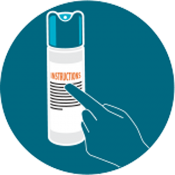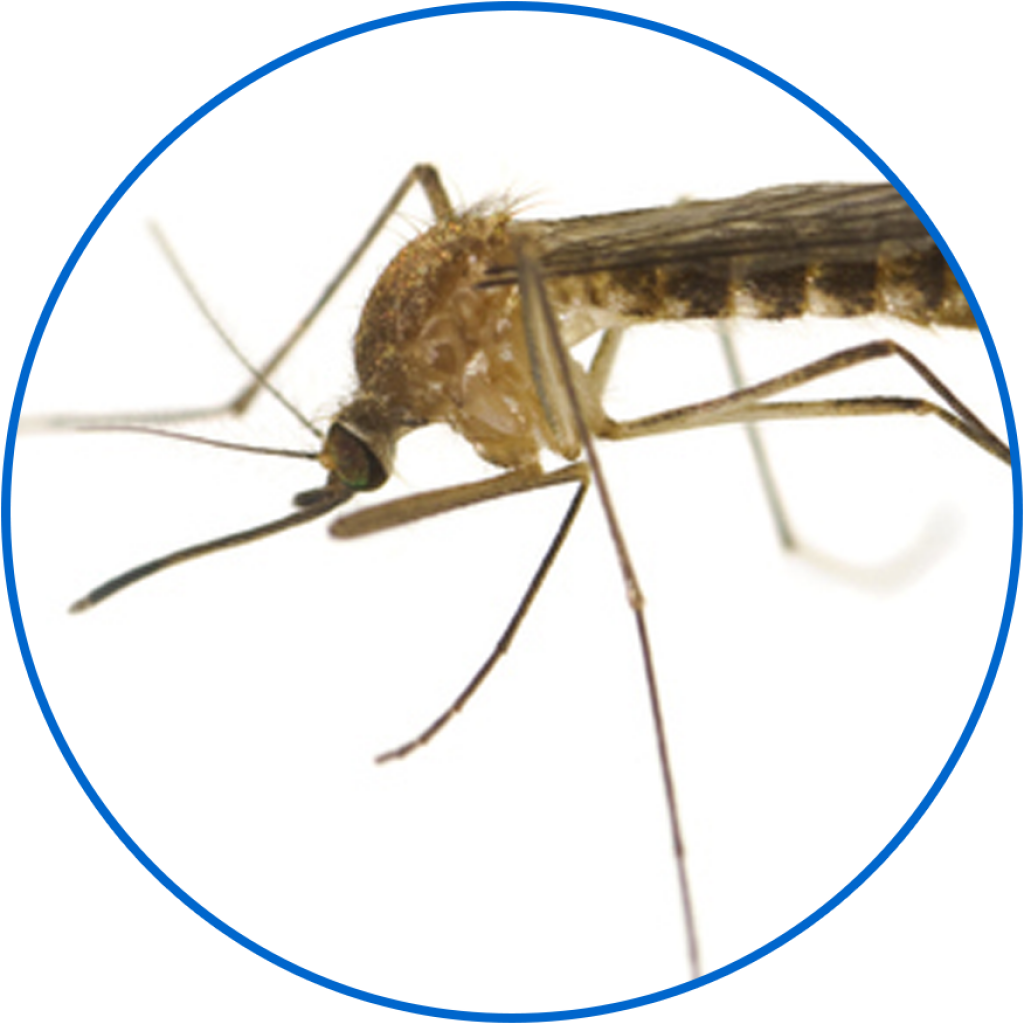REPELLENTS FREQUENTLY ASKED QUESTIONS
A. Apply repellent whenever you are going to be outdoors. Be aware that mosquitoes often can be most active at dusk and at dawn. Always remember to read and follow the label directions on the package.
A. Most personal repellents include products that contain varying amounts of DEET. However, if you’re looking for an active ingredient other than DEET, consider repellents that use Picaridin or Oil of Lemon Eucalyptus as its active ingredient.
A. Do not spray repellent directly on your face. Spray on your hands and then apply to face. Use repellent spray sparingly around eyes, mouth and ears. Do not allow children to handle this product. Do not apply to children’s hands. When using on children, apply repellent to your own hands and then to the child. Always remember to read and follow the label directions on the package.
A. Most personal repellents are made for human use only, but there are animal-friendly repellents.
A. The chemical DEET is the most widely used insect repellent in the country. It can reduce the risk of mosquito and tick bites, but products containing DEET must be used properly.
A. Read and follow the instructions on the label. Avoid over-application. Products with 10% to 35% DEET will provide adequate mosquito protection under most conditions – concentrations should be based on the duration of protection needed (e.g. for 1-2 hours use <10%, for 2-5 hours use 20%); For protection against tick bites, at least 20% is necessary. Use just enough repellent to cover exposed skin and/or clothing. After returning indoors, wash treated skin with soap and water. Wash treated clothing before wearing again. Do not spray directly on face, spray into hands and then apply to face. Do not apply over cuts, wounds, or irritated skin. Do not use under clothing. Do not spray DEET-containing products in enclosed areas.
A. Use caution when using repellents containing DEET on children. According to the American Academy of Pediatrics, repellents with up to 30% DEET can be used on children over 2 months of age. Dress children in long sleeves and pants and, when possible, apply repellent to clothing rather than skin. Do not apply on hands or near eyes and mouth of young children. Do not allow children to apply repellents themselves. After returning indoors, wash any treated skin with soap and water.
A. DEET has been used for more than 40 years by millions of people worldwide. Products containing DEET have been occasionally associated with some health problems such as skin reactions, including rash, swelling, itching, and eye irritation. In very rare circumstances, slurred speech, confusion and seizures have been associated with the use of DEET, particularly in children. The risk of experiencing any adverse health effects is reduced when products containing DEET are used according to label instructions.
A. Registered products that provide repellent activity sufficient to help people avoid the bites of disease carrying mosquitoes include Picaridin, Oil of Lemon Eucalyptus and IR3535.
CDC REPELLENT INFO

For the CDC recommendations on repellent please visit the CDC Zika page.
Q. When should I use mosquito repellent?
A. Apply repellent whenever you are going to be outdoors. Be aware that mosquitoes often can be most active at dusk and at dawn. Always remember to read and follow the label directions on the package.
Q. Do personal insect repellents contain DEET?
A. Most personal repellents include products that contain varying amounts of DEET. However, if you’re looking for an active ingredient other than DEET, consider repellents that use Picaridin or Oil of Lemon Eucalyptus as its active ingredient.
Q. Can I use insect repellents on my face?
A. Do not spray repellent directly on your face. Spray on your hands and then apply to face. Use repellent spray sparingly around eyes, mouth and ears. Do not allow children to handle this product. Do not apply to children’s hands. When using on children, apply repellent to your own hands and then to the child. Always remember to read and follow the label directions on the package.
Q. Can I use insect repellents on pets?
A. Most personal repellents are made for human use only, but there are animal-friendly repellents.
Q. What is DEET?
A. The chemical DEET is the most widely used insect repellent in the country. It can reduce the risk of mosquito and tick bites, but products containing DEET must be used properly.
Q. How should repellents containing DEET be used?
A. Read and follow the instructions on the label. Avoid over-application. Products with 10% to 35% DEET will provide adequate mosquito protection under most conditions – concentrations should be based on the duration of protection needed (e.g. for 1-2 hours use <10%, for 2-5 hours use 20%); For protection against tick bites, at least 20% is necessary. Use just enough repellent to cover exposed skin and/or clothing. After returning indoors, wash treated skin with soap and water. Wash treated clothing before wearing again. Do not spray directly on face, spray into hands and then apply to face. Do not apply over cuts, wounds, or irritated skin. Do not use under clothing. Do not spray DEET-containing products in enclosed areas.
Q. Is DEET safe to be used on children?
A. Use caution when using repellents containing DEET on children. According to the American Academy of Pediatrics, repellents with up to 30% DEET can be used on children over 2 months of age. Dress children in long sleeves and pants and, when possible, apply repellent to clothing rather than skin. Do not apply on hands or near eyes and mouth of young children. Do not allow children to apply repellents themselves. After returning indoors, wash any treated skin with soap and water.
Q. Will using repellents containing DEET affect my health?
A. DEET has been used for more than 40 years by millions of people worldwide. Products containing DEET have been occasionally associated with some health problems such as skin reactions, including rash, swelling, itching, and eye irritation. In very rare circumstances, slurred speech, confusion and seizures have been associated with the use of DEET, particularly in children. The risk of experiencing any adverse health effects is reduced when products containing DEET are used according to label instructions.
Q. Can I use a repellent that does not contain DEET?
A. Registered products that provide repellent activity sufficient to help people avoid the bites of disease carrying mosquitoes include Picaridin, Oil of Lemon Eucalyptus and IR3535.


